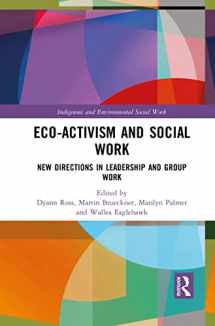
Eco-activism and Social Work (Indigenous and Environmental Social Work)
Book details
Summary
Description
Social workers are called upon to shift from a human-centric bias to an ecological ethical sensibility by embracing love as integral to their justice mission and by extending the idea of social justice to include environmental and species justice. This book presents the love ethic model as a way to do eco-justice work using public campaigns, research, community arts practice and other nonviolent, direct action strategies.
The model is premised on an active and ongoing commitment to the eco-values of love, eco-justice and nonviolence for the purpose of upholding the public interest. The love ethic model is informed by the stories of eco-activists who used nonviolent actions to address ecological issues such as: pollution; degradation of the environment; exploitation of farm animals; mining industry overriding First Nation Peoples’ land rights; and human health and social costs related to the natural resource industries, private land developments and government infrastructure projects.
Informed by practice insights by activists from a range of eco-justice concerns, this innovative book provides new directions in social work and environmental studies involving transformational change leadership and dialogical group work between interest groups. It should be considered essential reading for social work students, researchers and practitioners as well as eco-activists more generally.


We would LOVE it if you could help us and other readers by reviewing the book
Book review



